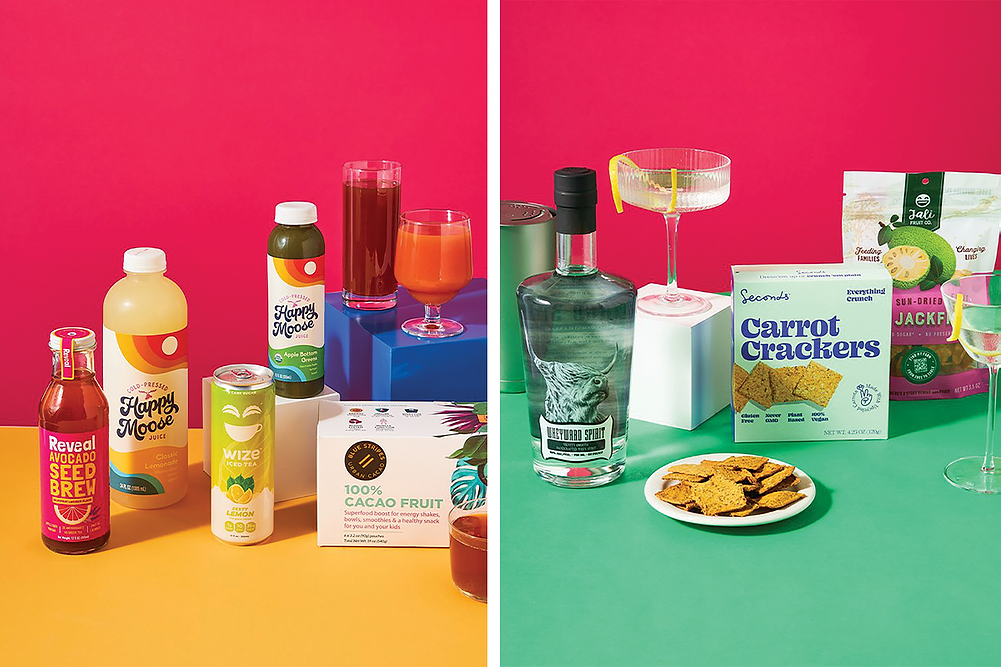KANSAS CITY — The Upcycled Food Association launched its Upcycled Certification mark last June. By May of this year, the mark was on the labels of over 200 products being sold in the United States, preventing 840 million lbs of food waste every year, said Turner Wyatt, chief executive officer and co-founder of the UFA.
“Historically speaking, looking back, it’ll totally make sense why upcycled foods are having such a moment right now and why it’s taking off,” he said.
The numbers should increase.
“There is something like 350 or 400 products that are (in the process of) being certified right now,” Mr. Wyatt said. “They are in the pipeline. It’s definitely growing very fast.”
Globally, about $1 trillion per year of food is wasted or lost, according to the association, which was founded in 2019. Food waste refers to consumers, retail stores or foodservice locations throwing away food. Manufacturers are responsible for food loss, which happens between the harvest and the retail stores or foodservice locations.
The association, a third-party certification program based in Greenwood Village, Colo., focuses on attracting investments to the upcycled industry, improving the upcycled business network, improving the upcycled supply chain and increasing consumer demand for upcycled products.
Before launching Upcycled Certified, the association first needed a definition for upcycled. A team of experts from Harvard Law School, Drexel University, the World Wildlife Fund, the Natural Resources Defense Council, ReFED and others defined upcycled food in 2020 for use in policy, research and other areas: Upcycled foods use ingredients that otherwise would not have gone to human consumption, are procured and produced using verifiable supply chains, and have a positive impact on the environment.
The baking industry has a presence in Upcycled Certified. The Kroger Co., Cincinnati, released a line of Upcycled Certified baking mixes under its Simple Truth brand. ReGrained, San Francisco, uses “spent” grain from brewing to create baking mixes. EverGrain Ingredients, St. Louis, takes “spent” grain from AB InBev to make EverPro barley isolates, which may be used in snacks, spreads, shakes, smoothies, plant-based milk alternatives, coffee and tea, and EverVita barley ingredients, which may be used in bread, cakes, muffins, cookies, biscuits, pizza crusts, pastas, noodles, bars and snacks.
Puris, Minneapolis, originally offered pea protein ingredients. Pea is 58% starch and 23% protein.
“This meant there was a valuable carbohydrate stream coming through our plant that we did not know how to capture,” said Anna Gustafson, nutrition and application scientist, in a May 12 webinar.
Puris developed a way to isolate the starch from the protein and now offers Upcycled Certified pea starch for use in applications such as pasta and gluten-free baked foods as well as gummies, confectionery items, batters, breadings, beverages, sauces, spreads and dips.
“People have been upcycling things for millennia,” she said. “If they were hunting, they would often use the hide for clothing and the fur for insulation in their clothes. It’s not a new concept at all. However, the upcycled certification actually puts quality measures in place.”
The UFA is hitting the trade show circuit this year to make industry aware of its effort to reduce food waste. The association had a booth at Natural Products Expo West held in Anaheim, Calif., in March.
“Expo West was a big deal for us because we got to show (retailers) for the first time, ‘Look, we have all these great products that you could be carrying and could be helping you accomplish your own sustainability goals,’” Mr. Wyatt said.
The UFA also plans to have a presence at events such as the Institute of Food Technologists’ annual meeting and exposition in Chicago in July and SupplySide West in Las Vegas in October.
Less than 10% of consumers know what upcycled products are.
“Right now, there’s a huge gap in the consumer education itself,” Mr. Wyatt said. “So we have a ton of education to do.”
Consumers generally are favorable when they find out what upcycling means.
“I think food waste is one of those special places where everyone agrees,” Mr. Wyatt said.




